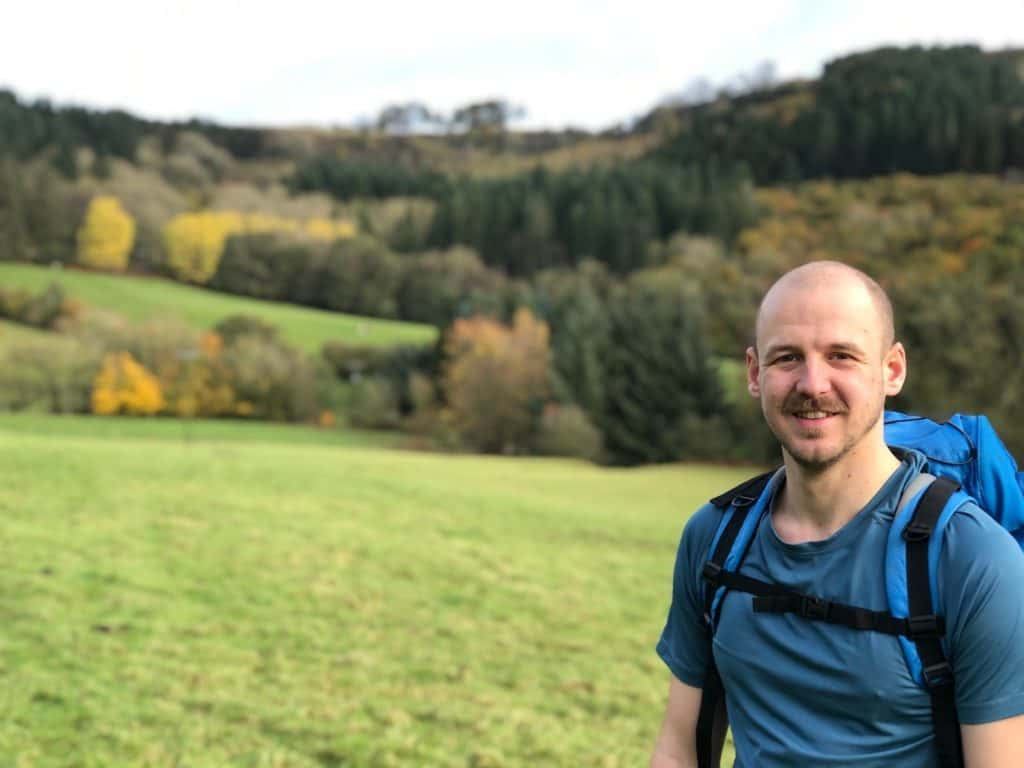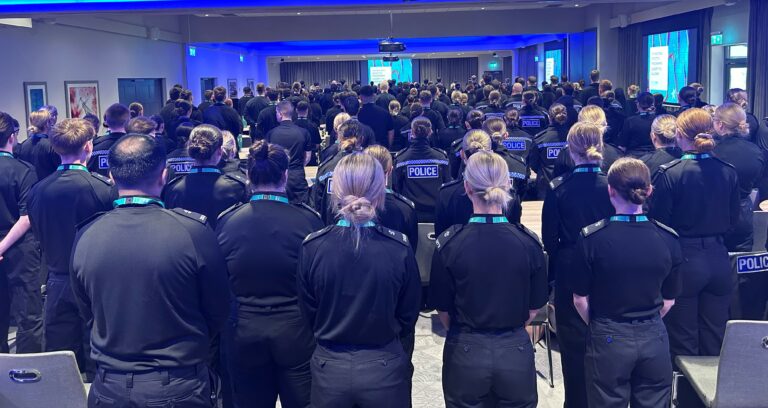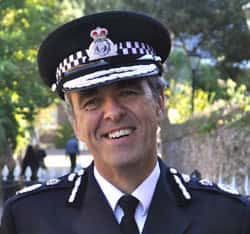Police Now officers tackling crime and anti-social behaviour across Greater Manchester
Friday 28 May 2021
Nearly 40,000 fewer anti-social behaviour incidents nationally in areas with Police Now officers – equivalent to 14% fall
Substantial decrease in criminal damage & arson, burglary and theft amongst other crimes
Police Now attracts and develops the most diverse group of officers in policing
Police Now officers are playing a vital role in tackling crime and anti-social behaviour in Greater Manchester.
Communities nationwide where Police Now officers have been posted for the last 22-months have seen 38,772 fewer incidents of anti-social behaviour compared to the same time period from October 2016 – equivalent to a 14 per cent drop.
Officers on Police Now’s National Graduate Leadership Programme have been working alongside their colleagues within their local neighbourhood teams.
As well as the drop in anti-social behaviour, communities have also seen 14,301 fewer incidents of criminal damage & arson – a fall of 13 per cent. There were 12,460 fewer incidents of burglary – a fall of 16 per cent – and 31,732 fewer incidents of theft, equivalent to a 14 per cent fall.
PC Kim Daniel’s quick thinking led to the swift arrest and subsequent conviction of a man for breaching a harassment order. PC Daniel of GMP, went to an emergency call involving a violent man banging on a distressed woman’s door. When she was told the man’s name over her police radio, she immediately recognised him as being on a wanted list and alerted colleagues.
When she arrived at the scene, she saw a drunk man shouting and swearing. He was banned from being on that street because of his previous behaviour and was subsequently arrested for breaching bail and a harassment order. He was convicted and given a custodial sentence for these offences.
PC Daniel said: “Localised problems of anti-social behaviour really affect people’s day to day lives. I believe having a diverse neighbourhood team, who routinely patrol and investigate particular areas, can positively impact crime and create long term relationships between the police and the public.”
PC James Maskrey, also of GMP, stopped a group of youths throwing bricks at a block of flats housing vulnerable adults by securing the abandoned building where they were getting the debris from. He has been active on the force’s social media in a bid to build community engagement.
He also rehoused a woman in her 90s who was living in a home without a proper kitchen, central heating or bed. At times she was heating her home by burning sticks she found on the ground. PC Maskrey first visited the woman in December and realised the urgency of the situation. He spoke with a senior manager in the local housing group and secured a fully refurbished ground floor flat on the same street. When PC Maskrey called to check on the woman in her new home, he was concerned when she didn’t answer the door. It turned out she was simply enjoying her best sleep in years.
PC Maskrey, a Royal Marine Reserve, said: “A diverse workforce in policing is something that benefits the community. That means being diverse not only in the sense of race, sex, gender and religion but also life experience. Having served in the Royal Marine Reserves, I am now the Armed Forces Lead on the City of Manchester South Division.”
Police Now’s mission is to transform communities by recruiting, developing and inspiring diverse leaders in policing.
Officers on Police Now’s programmes develop skills in leadership and problem-solving. They share a commitment to public service, fighting crime and inspiring social change alongside their colleagues.
Police Now has recruited a total of 1,830 officers across 33 forces in the UK, including within Greater Manchester Police (GMP) who have partnered with Police Now for the past four years, with 163 police constables and 22 detective constables joining the Force via this route.
Police Now consistently recruits more officers who are women or from black, Asian and minority ethnic backgrounds compared to any other entry route into policing. Police Now recruitment data shows that of those starting the Police Now Programmes in Greater Manchester in 2019 and 2020, nearly a quarter (24 per cent) identified as coming from a black, Asian and minority ethnic background.
“We’re incredibly proud of the positive impact our participants continue to have within their local communities, and their commitment to driving positive change with their colleagues so that everyone in our society, including the most vulnerable, have a chance to thrive”.
David Spencer
Co-founder of Police Now and former Detective Chief Inspector
Impact in the
community

Q&A with Police Constable Kimberley Daniel
Neighbourhood Police Officer
National Graduate Leadership Programme Participant
Greater Manchester Police
Police Now is trying to increase diversity in the force. Do you think having a force that better reflects the community it serves helps to bring down crimes like anti-social behaviour and why?
Localised problems of anti-social behaviour, such as theft and parking problems, really affect people’s day to day lives. I believe having a diverse neighbourhood team, who routinely patrol and investigate particular areas, can positively impact crime and create long term relationships between the police and the public.
What was the most important lesson you took from your training with Police Now that has enabled you to deal with crime / support your community?
I feel Police Now focus on combating problems, through the emphasis on how the different psychological theories relate to crime and communities. This is really an initiative way of policing which, following my psychology degree, I strongly advocate. I believe this modern view is something which can help communities through formed patterns of behaviour, and intelligence led policing.
Have you implemented any new initiatives to reduce ASB or burglary crimes, or build confidence in policing in your community?
I attended an emergency call of a violent man in Tameside who was banging on a woman’s doors, who was in distress. The radio communications officer relayed to officers on route the man’s name, I immediately recognised him as being wanted and listed on the police briefing that afternoon. I attended the address to see a man shouting and swearing, and I confirmed he was the wanted man from the police intelligence system. I arrested him, and he was hand cuffed to the rear. The man was highly intoxicated, swearing and extremely vulgar during his arrest. He was arrested for breach of bail and protection of harassment Order. The man was located on the street which the protection of harassment order prevented him from attending. The man was taken to custody, where he continued to be verbally abusive. He was remanded in police custody and was charged with harassment, attempted sexual assault on a woman and attempted sexual assault on a girl aged 13 years or over. The man was convicted in November 2020 and given a custodial sentence for these offence
What has been the moment that you have been most proud of professionally in the last 22 months?
I have also been working on targeting shoplifting, including issuing a Criminal Behaviour Order against one prolific shoplifter. This has been part of a 5-month investigation which has led to a number of charges against the individual. Proceedings are still active.

Q&A with Police Constable James Maskrey
Neighbourhood Police Officer
National Graduate Leadership Programme Participant
Greater Manchester Police
Why did you enrol with Police Now?
Initially Police Now popped up on my screen as an advert, I thought I’m not interested in that and left it. Then it popped back up again a few weeks later so I thought I would check it out. From there I decided there would be no harm in submitting an application and seeing what happens, next thing I knew I was in London for an assessment day which I really enjoyed and everything just felt natural.
I had a really good job before joining the police, I was running construction sites by managing a site of 30 people, procuring contracts and the planning and daily running of the site. At the time I was also volunteering as a Special Constable, but found myself volunteering every hour I had spare, doing over 100 hours a month.
One thing I am really grateful for, by being able to join the police as part of Police Now onto Neighbourhoods, is that I have been able to better utilise my previous experiences; not only from project managing but also the leadership skills I have gained from the Royal Marine Reserves over the past 10 years. Since joining the Neighbourhood team, I have been planning operations, executing warrants with multiple teams, tackling long term issues and helping vulnerable members of the community.
Police Now is trying to increase diversity in the force. Do you think having a force that better reflects the community it serves helps to bring down crimes like anti-social behaviour and why?
Yes, I fully agree that have a diverse workforce in policing is something that will benefit the community, not only diverse in the sense of race, sex, gender, religion but also life experience. Having served in the Royal Marine Reserves I am now the Armed Forces Lead on the City of Manchester South Division. There are a few of us across the force, mainly veterans who help identify other veterans who need support whether that is with housing or with mental health and signpost them to other services. We also look at other disposals for those who have committed crimes as a way of diverting them away from the criminal justice system and refer them on to other agencies such as Project Nova. This way they do not have a criminal record and will not restrict their future employments.
What was the most important lesson you took from your training with Police Now that has enabled you to deal with crime / support your community?
The importance of a multi-agency approach to dealing with issues you identify in the community, and this does not necessarily just mean crime. Police Now is hot on vulnerability and the majority of the training was focused on this area, whether that is dealing with youths causing ASB, Child Criminal Exploitation, Child Sexual Exploitation and cuckooing etc. The guest speakers they had were very impactive. Paul Hannaford did a talk on his life experience as a drug dealer and gang member and the realities of how this impacted him. Sammy Woodhouse, a victim of the Rotherham child sexual exploitation gang talked about her experience, how they got her involved and the lack of help / action from other agencies who could have prevented it. This was very impactive and highlighted just how important our role as a police officer is, not only to catch criminals but also protect the vulnerable from being exploited.
Have you implemented any new initiatives to reduce ASB or burglary crimes, or build confidence in policing in your community?
Shortly after I joined there was a group of youths who would enter the grounds of an abandoned building, throwing stones and bricks at a block of flats that was the home to vulnerable adults in supported living. The grounds of the abandoned building were insecure; you could simply walk off the street into the grounds. This was ongoing for months, but the group would always leave quickly and there was no CCTV or lines of enquiry to identify them, so establishing a police response was difficult.
I attended a meeting back which was between Manchester City Council, the owners of the housing complex, a separate housing group, staff from the supported living and ourselves (the police). During the meeting everyone put forward ideas and discussed them with each other. I used my past experience developing a pub in a residential area which had a very similar issue with youths trying to set the pub on fire and breaking in. I decided that a solution which had worked for me then might work again here.
I conducted a Health and Safety report on the abandoned building and surrounding land and proposed a number of solutions which, when done together, should prevent further incidents of ASB. I worked hard on the report and once it was handed to all those present in the meeting, it was unanimously agreed that the suggestions in the report would be enacted. These included erected an 8ft fence around the boundary, removing all lose materials and debris from the grounds and securing all the windows and doors so the building could not be accessed by non-residents. Since this was completed, we have had no further incidents or windows broken at the supported living complex.
What has been the moment that you have been most proud of professionally in the last 22 months?
I use ‘GMP Wythenshawe’ social media pages on Facebook and Twitter to showcase the good work that we do. We get slated a lot on social media with the usual ‘police don’t do anything’, therefore I try to show what we do. If we recover a stolen vehicle, I will put it on; if someone is arrested and charged for a crime that affects the community, I will put that on; once I execute a warrant, I will post the results and information on how to pass on intelligence anonymously via crime stoppers. I also put on a summary of operations I have run to try and show that we are out there tackling crime and helping to improve the community. This tends to result in more information being passed.
We also had a lot of complaints about speeding vehicles during lockdown last year. I ran 6 traffic operations on a main road which made us visible to both drivers and members of the community which was well received (one member of the public also brought us several ice pops).
Data references
Using data taken from Police Recorded Crime Statistics, the independently peer-reviewed figures compare the 22-month period from October 2016 to July 2018 before any Police Now officers had joined their local communities to the period when they joined from October 2018 to July 2020.
The data presented here is subject to limitations with Police Recorded Crime Statistics and methodology. More details on this are available at the bottom of the following Police Now webpage.






